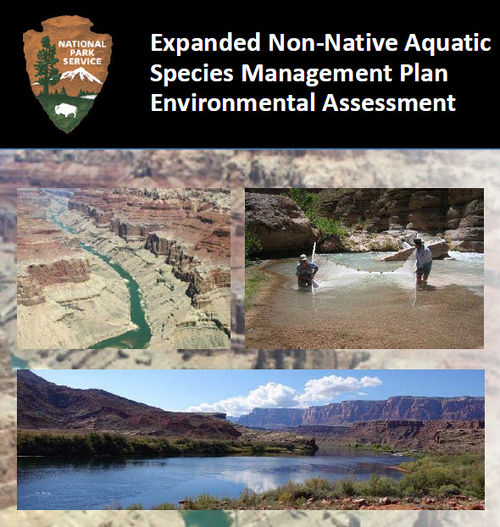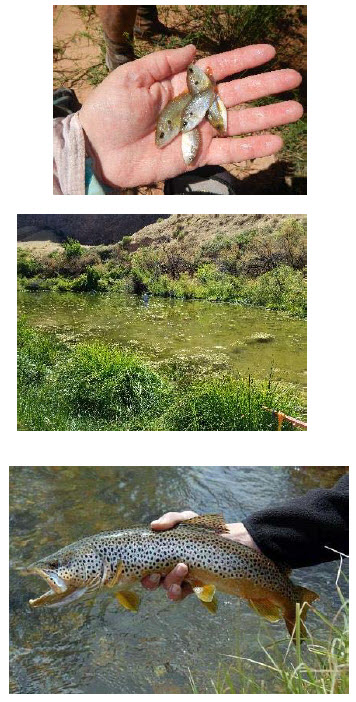National Park Service Expanded Non-native Aquatic Species Management Plan and EA
|
|
2018 National Park Service Expanded Non-native Aquatic Species Management Plan and EAThe National Park Service (NPS) intends to prepare an Environmental Assessment (EA) under the provisions of the National Environmental Policy Act (NEPA) for an Expanded Non-native Aquatic Species Management Plan in Glen Canyon National Recreation Area and Grand Canyon National Park below the Glen Canyon Dam. Your participation is vital to the planning process. Project BackgroundIn 2013, the NPS completed the Comprehensive Fish Management Plan (CFMP). The intent of that effort was to provide guidance for managing fish within the Colorado River and its tributaries from Glen Canyon Dam to Lake Mead. Since the completion of the CFMP and the 2016 Long Term Experimental and Management Plan (LTEMP) for Glen Canyon Dam operations, increases in potentially harmful non-native fish have been documented. This plan is intended to address this concern. The NPS is coordinating with the Bureau of Reclamation (Reclamation), the Arizona Game and Fish Department, the US Fish and Wildlife Service and several other federal and non-federal cooperating agencies and traditionally associated tribes on this project. Purpose and NeedThe purpose of this action is to provide additional tools beyond what is available under the CFMP and the LTEMP, in order to allow the NPS to prevent, control, minimize or eradicate potentially harmful non-native aquatic species, or the risk associated with their presence or expansion, in the action area. The need for this action is due to the increase of green sunfish, brown trout and potential expansion or invasion of other harmful non-native aquatic species that threaten downstream native aquatic species including listed species or the Lees Ferry recreational rainbow trout fishery. These non-native species have become an increasing threat due to changing conditions since the completion of the 2013 NPS CFMP and the 2016 LTEMP. Existing measures may be inadequate to address potentially harmful non-native aquatic species. [1] |
| -- |
-- |
-- |
|---|

